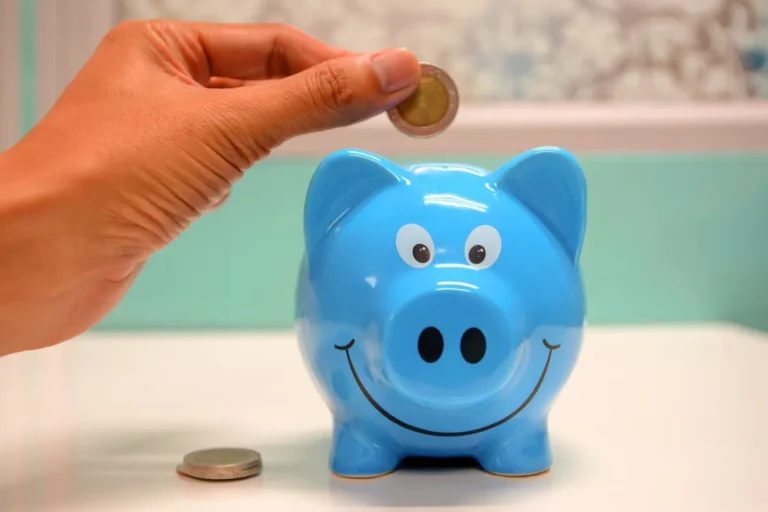10 Smart Ways to Save More Money This Year
As the new year starts, many of us want to improve our finances. Saving money can seem hard, like giving up too much. But, what if you could save a lot without changing your life too much?
In this guide, we’ll share ten smart ways to manage your money better. These tips will help you pay off debt, save for emergencies, or just have more money in your pocket. You’ll learn how to reach your financial goals.
Key Takeaways
- Discover practical ways to save more money without sacrificing your lifestyle
- Implement strategies to build wealth and achieve your financial goals
- Learn how to budget effectively, reduce expenses, and take advantage of discounts
- Understand the benefits of using cash, investing in your education, and automating your savings
- Explore tips to lower your utility bills, limit dining out, and utilize public transportation
Create a Realistic Budget
Budgeting is key to smart personal finance. It helps you spend wisely and reach your financial goals. Whether saving for a big buy, paying off debt, or managing money better, a good budget is essential.
Set Clear Financial Goals
First, define your financial goals. Think about what you want to do with your money. This could be saving for emergencies, paying off loans, or a house down payment. With clear goals, you can plan your budget better.
Track Your Spending Habits
To make a good budget, know where your money goes. Track your spending for a few weeks or months. Categorize it into needs (like rent and food) and wants (like dining out and shopping). This shows where you can save and spend on what’s important.
| Expense Category | Average Monthly Spending |
|---|---|
| Rent/Mortgage | $1,200 |
| Utilities | $200 |
| Groceries | $500 |
| Transportation | $150 |
| Dining Out | $300 |
| Entertainment | $150 |
| Miscellaneous | $200 |
Understanding your spending and aligning it with your financial goals helps you manage your money. This leads to a more secure financial future.
Cut Unnecessary Subscriptions
One of the best cost-cutting strategies for frugal living is to look at your recurring expenses. Cut any smart spending on subscriptions you don’t use or need. Today, it’s common to have many monthly fees for things like streaming and online storage. But, by examining your spending, you can find ways to save money.
Assess What You Actually Use
Start by making a list of all your recurring charges. Look at your bank statements and credit card bills. Then, ask yourself these questions for each:
- When was the last time I used this service?
- Does it still provide value to my life or business?
- Am I taking full advantage of the features and capabilities?
Cancel What You Don’t Need
After finding subscriptions you don’t need, cancel them. Contact the providers and stop the services. This action can save you money that you can use for other important things like saving for emergencies or paying off debt.
By managing your cost-cutting strategies, you can live more frugally and make better spending choices. Regularly checking and cutting your subscriptions helps you save money. This way, you can focus on what’s truly important to you.
Shop Smart with Lists
Creating shopping lists is a simple yet effective money-saving hack that can significantly reduce your spending on everyday items. Whether you’re heading to the grocery store or browsing online, having a well-thought-out list can help you stick to your budget and avoid impulse buys.
Make a Grocery List Before Shopping
Before setting foot in the supermarket or opening your favorite grocery delivery app, take the time to plan your purchases. Sit down and make a comprehensive list of the items you need, based on your frugal living goals and weekly meal plans. This step helps you stay focused and organized, ensuring you don’t forget important items or end up with unnecessary purchases.
Stick to Your List to Avoid Impulse Buys
Once you have your grocery list in hand, the key is to stick to it during your shopping trip. It’s easy to get tempted by enticing displays or special offers, but resist the urge to stray from your plan. Smart spending means being disciplined and avoiding impulse buys, which can quickly add up and derail your money-saving hacks.
| Benefits of Using a Shopping List | Drawbacks of Not Using a List |
|---|---|
|
|
By making and sticking to a well-crafted shopping list, you can effectively implement money-saving hacks and frugal living strategies to keep your spending in check and achieve your smart spending goals.
Use Cash Instead of Credit
Using cash for everyday expenses can be very effective in managing your money. The envelope system is a great way to budget with cash. It helps you control your spending and avoid credit card debt.
The Envelope System Explained
The envelope system is easy and powerful. Here’s how it works:
- First, list your monthly expenses and group them (like groceries, gas, and entertainment).
- Then, take out the right amount of cash for each group and put it in labeled envelopes.
- When you buy something, use the cash from the right envelope. This keeps you on budget.
Benefits of Using Cash
Choosing cash over credit cards has many benefits for your personal finance, debt reduction, and smart spending goals:
- Increased Awareness: Handing over cash makes you think more about your spending. It helps you avoid buying things on impulse.
- Discipline and Control: The envelope system gives you control over your money. It makes it harder to spend too much.
- Avoidance of Debt: Using cash means you can’t get into credit card debt. This can be hard to pay off.
Trying the envelope system and using cash for daily expenses can change your financial life. It’s a key step towards personal finance success, debt reduction, and smart spending. Give it a shot and see how it improves your financial health.

Take Advantage of Discounts and Coupons
Looking to save more money this year? One smart move is to use discounts and coupons. These can cut down your spending, making your money go further.
Sign Up for Cashback Programs
Joining cashback programs is a clever way to save on daily buys. You get a percentage back on certain purchases. Over time, this adds up. Apps like Rakuten, Ibotta, and TopCashback are great for this.
Use Apps for Extra Savings
Many apps help you find and use discounts and coupons. This makes saving easier. Apps like Honey, Coupons.com, and RetailMeNot find and apply promo codes for you.
Using these strategies can help you save a lot. Whether it’s cashback programs or shopping apps, the goal is to find every discount. This way, you can reach your financial goals.
“The secret to saving money is finding ways to get the things you want for less.”
Buy in Bulk When Possible
Buying in bulk can really save you money. You get discounts and stretch your budget. But, it’s key to do it smartly to avoid wasting money.
Identify Items That Save You Money
Not all items are good for bulk buying. Look for things you use a lot and last long. Great items for bulk include:
- Non-perishable pantry staples like grains, beans, and spices
- Household cleaning supplies and personal care products
- Frozen foods that can be stored for extended periods
- Paper products like toilet paper, paper towels, and tissues
Understand Storage Considerations
Having enough space is crucial for bulk buying. Think about the size and weight of items. Also, consider if they need special storage. Good storage prevents waste and saves you money.
| Item | Ideal Storage Conditions | Estimated Savings |
|---|---|---|
| Rice | Cool, dry place | Up to 50% |
| Laundry detergent | Cool, dark place | 30-40% |
| Toilet paper | Dry, temperature-controlled area | 25-35% |

Choosing the right items and storing them well can save you a lot. It’s a smart way to live frugally and save money all year.
Save Energy and Reduce Utility Bills
Smart spending on energy and utility bills can really help cut costs. Simple tips and smart home gadgets can lead to big savings on your bills each month.
Simple Energy-Saving Tips
- Swap out traditional light bulbs for energy-efficient LEDs, which use up to 80% less energy and last longer.
- Unplug appliances and electronics when not in use to eliminate phantom power draw.
- Adjust your thermostat to maintain a comfortable temperature without over-cooling or over-heating your home.
- Seal air leaks around windows, doors, and ducts to prevent warm or cool air from escaping.
- Take shorter showers and consider installing low-flow showerheads to reduce water consumption.
Smart Home Gadget Options
Smart home technologies can also help you save money. Here are some devices to consider for better energy use and lower bills:
- Smart thermostat: Automatically adjust temperatures based on your schedule and preferences, providing precise control over your home’s climate.
- Smart power strips: Automatically shut off power to unused devices, cutting standby power consumption.
- Smart light bulbs: Program lighting schedules, change color temperatures, and control brightness to suit your needs.
- Smart water sensors: Detect leaks and monitor water usage, helping you identify and address any inefficiencies.
Using these cost-cutting strategies and money-saving hacks can help you manage your utility bills. You’ll enjoy a more energy-efficient home too.
“Reducing your energy consumption not only saves you money but also contributes to a more sustainable future.”
Limit Dining Out and Takeout
Trying to save money and live more frugally? Cutting back on eating out and takeout can really help. Cooking at home more often cuts down on food costs. Plus, you get to enjoy meals made with love in your own kitchen.
Plan Meals for the Week
Meal planning is a smart way to save money and reduce waste. Start each week by planning your meals and making a shopping list. This helps you find deals, buy in bulk, and prepare meals that are both healthy and affordable.
Try Cooking New Recipes at Home
Cooking at home doesn’t have to be dull. Look for recipes that fit your budget and taste. You can find them online or in books. Trying new dishes is a fun way to save money and learn new cooking skills.
| Dining Out | Cooking at Home |
|---|---|
| Higher costs per meal | Lower costs per meal |
| Less control over ingredients and nutrition | More control over ingredients and nutrition |
| Convenience but can be time-consuming | Time-consuming but allows for meal planning |
| Limited variety and customization | Endless recipe possibilities and customization |
Adopting a more home-cooked lifestyle can save you money, improve your health, and spark a love for cooking. It’s a smart choice that can greatly benefit your budget and well-being.

Utilize Public Transportation
Using public transportation is a smart way to save money. It’s often overlooked but can greatly reduce your expenses. Plus, it offers benefits beyond just saving cash.
Calculate Your Potential Savings
To figure out how much you can save, start by adding up your monthly car costs. This includes gas, maintenance, insurance, and parking. Then, compare these to the cost of a public transit pass or ticket. You might save hundreds of dollars a year.
Benefits Beyond Saving Money
- Reduce your carbon footprint and contribute to a more sustainable environment.
- Avoid the stress and hassle of traffic jams and finding parking spots.
- Use your commute time productively, such as reading, working, or relaxing.
- Eliminate the need to maintain and insure a personal vehicle.
| Cost Category | Personal Vehicle | Public Transportation |
|---|---|---|
| Gas | $150/month | $0 |
| Maintenance | $50/month | $0 |
| Insurance | $100/month | $0 |
| Parking | $50/month | $0 |
| Public Transit Pass | $0 | $50/month |
| Total Monthly Cost | $350 | $50 |
Switching to public transportation can save you $300 per month or $3,600 a year. This is a big way to cut costs and use that money for other important goals.
Set Up an Automatic Savings Plan
Reaching your personal finance and wealth building goals is simpler with an automatic savings plan. It lets you save more money by moving a set amount to a savings account regularly. This way, you save without even thinking about it.
Start Small If Necessary
Don’t worry if you can’t save a lot at first. Begin with a small amount, like $25 or $50. The goal is to make saving a regular habit. As your finances improve, you can increase the amount you save.
Choose the Right Account
- High-yield savings account: These offer higher interest rates, helping your money grow faster.
- Online-only savings account: Online banks often have better rates due to lower costs.
- Employer-sponsored retirement account: Contributing to a 401(k) or similar plan through payroll deduction is a smart way to save for retirement.
The best savings account for you depends on your financial goals and timeline. Take time to research and compare to find the perfect match.
“Automating your savings is one of the most effective ways to build wealth over time. It removes the temptation to spend the money and ensures your savings grow consistently.”

Review Your Insurance Policies
It’s important to protect your money from unexpected costs. Reviewing your insurance can be a smart move. By comparing prices and knowing what you need, you can save money.
Compare Quotes for Better Rates
Looking for insurance quotes can lead to savings. Take the time to compare prices from different companies. The cheapest option might not always be the best, so think about coverage, deductibles, and service too.
Understand What Coverage You Need
- Think about your lifestyle, what you own, and possible risks to figure out how much insurance you need.
- Check your current policies to make sure you’re not paying for things you don’t need.
- Consider your health, age, and family when deciding on insurance.
| Type of Insurance | Key Considerations | Potential Savings |
|---|---|---|
| Auto Insurance | Compare liability limits, deductibles, and discounts for safe driving or bundling policies. | $200 – $500 per year |
| Homeowner’s or Renter’s Insurance | Review coverage for your property’s value, personal belongings, and liability protection. | $100 – $300 per year |
| Health Insurance | Explore high-deductible plans, take advantage of employer or government subsidies, and maintain preventive care. | $500 – $2,000 per year |
By carefully reviewing your insurance and making smart choices, you can save a lot. This helps you reach your financial goals.
Invest in Your Financial Education
To reach your money-saving goals, keep learning about finance. This knowledge helps you manage money well and make smart choices. It’s key for your financial future.
Recommended Books and Resources
Dive into a world of finance knowledge with books and online resources. Classics like “The Total Money Makeover” by Dave Ramsey and “The Psychology of Money” by Morgan Housel are great. They teach about budgeting, investing, and wealth.
Also, check out websites like personal finance, financial goals, and wealth building. They have lots of articles, guides, and tools to boost your financial literacy.
Consider Online Courses for Budgeting
Today, there are many online courses and webinars for better budgeting skills. Sites like Coursera, Udemy, and edX have affordable options. You can learn at your own speed and focus on what you need.
These resources help you understand budgeting, save money, and build wealth. It’s a smart investment in your financial education.






